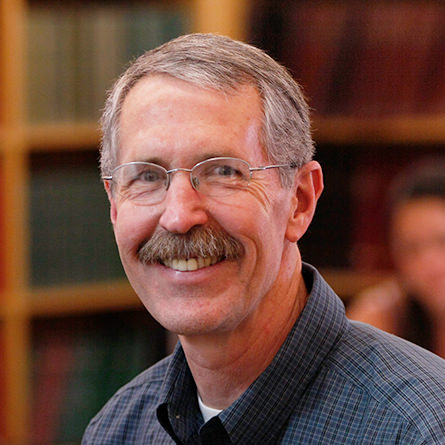Stephen Loomis
Jean C. Tempel '65 Professor Emeritus of Biology
With Connecticut College: 1980-2017
Education
Invertebrate stress physiology
Marine biology
Tropical biology
A former provost and dean of the faculty, Loomis believes that cryobiology, especially natural freezing tolerance, is a perfect topic for research at an undergraduate institution. He included students in research projects ranging from the ecology of freeze tolerance to molecular biology and biochemistry. Loomis retired from teaching in December, 2017.
He believes that the experience is great preparation for graduate school and beyond because it teaches students to understand how science works. Moreover, he adds that even if these students do not continue in science they become better citizens, making more informed decisions and questioning dogmatic statements.
In November of 2000, Professor Loomis was named the Connecticut Professor of the Year by the Council for Advancement and Support of Education (CASE) and the Carnegie Foundation for the Advancement of Teaching. The annual awards are given to the nation's top college and university professors in recognition of their teaching.
Loomis is an avid supporter of his department's curriculum, which gives students the training to do meaningful research before they graduate. Most of the co-authors on Loomis' publications since 1980 have been undergraduate students.
He has taught numerous courses within the department including general biology, human physiology, general zoology, comparative physiology, physiological chemistry, cell biology, invertebrate zoology, marine biology, coral reef biology, and field tropical biology.
Loomis' main research interests lie in the area of stress physiology of invertebrates. He is particularly interested in the biochemical mechanisms which allow certain invertebrates to survive with very low metabolic rates during periods of environmental stress. His studies have been broad in their scope, ranging from ecology to physiology to molecular biology.
Loomis has received grants from both the Cottrell Research Corporation and the National Science Foundation (NSF) to continue his research. A recent venture is studying the mechanisms of metabolic rate reduction in gemmules in fresh-water sponges, for which he also received a grant from the NSF.
He recenty supervised student independent studies on the cold tolerance of the intertidal amphipod Orchestia grillus and the proteomics of cold tolerance in the gills of Geukensia demissa, conducted by three researchers from the Class of 2011. In 2012, he supervised student independent studies on gelatinous zooplankton population dynamics in the nearby Niantic River.
Loomis is a member of the Society for Cryobiology, American Association for the Advancement of Science, Society for Cryobiology Sigma Xi and the Society for Integrative and Comparative Biology.
Loomis is a discussant in the College's Joy Shechtman Mankoff Center for Teaching & Learning "Talking Teaching" and "Camp Teach & Learn" programs. The Center (CTL) The Joy Shechtman Mankoff Center for Teaching & Learning (CTL) at Connecticut College promotes engaged and effective teaching that cultivates significant student learning. He also is an instructor in the College's Tempel Summer Institute, which introduces faculty members to the latest instructional technology.
Visit the biology department website.
Contact Stephen Loomis
Mailing Address
Stephen Loomis
Connecticut College
270 Mohegan Ave.
New London, CT 06320
